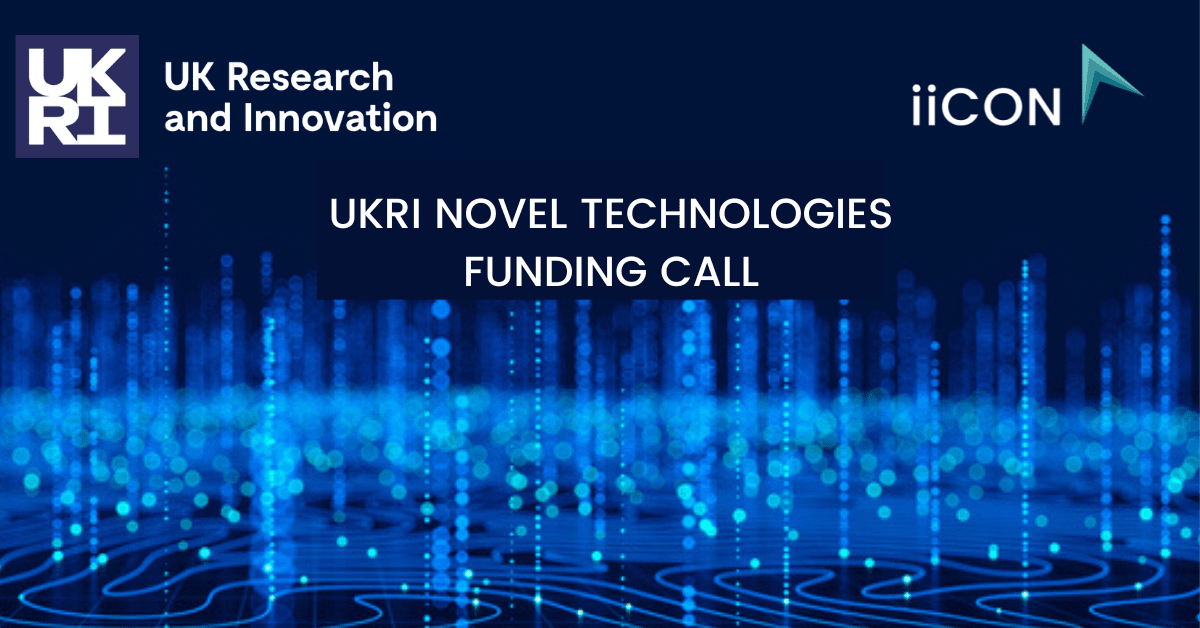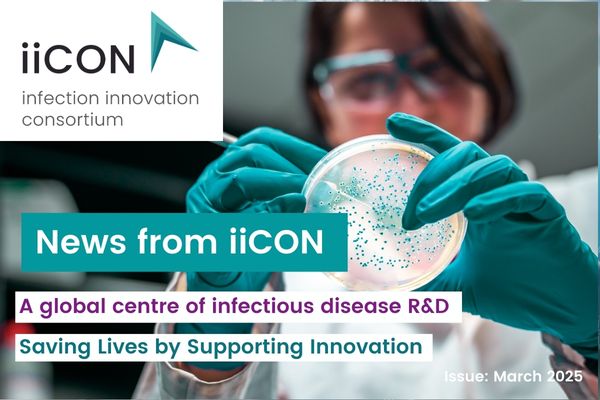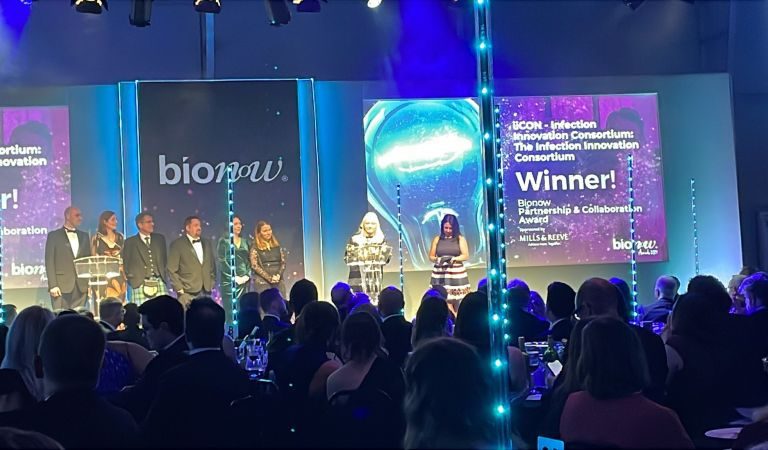- Join the Innovation Journey
- Our Platforms
iiCON launches applications for £1.5M UKRI tackling infections fund

Applications have now closed.
Applications are now open for new network grants (up to £50K) or proof of concept studies to be completed over 6 – 9 months (£50 – £150K).
Sandpits were held in Liverpool and London and attended by over 200 multi-sectoral stakeholders to flesh out the scope of the call and stimulate new networking connections. The call is intended to pump prime new initiatives that could bring disruptive technology, methodologies or thinking to the issue of infectious disease. It is not able to fund the development of new antibiotics and companion diagnostics or epidemiological studies of AMR.
Recommendations of fruitful areas that should be explored from the sandpits were:
Novel approaches and networks to integrate AI and Machine Learning into infection R & D – this might include access to and/or improvement of data sets, adaptive sampling, in silico and predictive modelling of non-pharmaceutical interventions. Development of new tools to convert data sets from multiple sources for AI analysis.
Improving population access and uptake of interventions – this might include improved understanding of why pathogen transmission disproportionately affects low socio-economic groups and how interventions might be targeted to address this.
Disruptive approaches to resistance surveillance, avoidance and management – this might include infection prevention technologies, better education and communication strategies, culturally applicable approaches to/for surveillance, health economic assessment of interventions. Improved understanding of transmission routes, where pathogen reservoirs proliferate and their impact.
Disruptive non-pharmaceutical interventions – this might include behavioural, infrastructure, workflow or economic norm disruption. They might include approaches for pathogens transmitted via ingestion, aerosol, surface, water media. The emphasis should be on interventions with the greatest impact and deploy-ability.
Exploiting microbiome, phage or alternative biologic technologies – this might include tackling regulatory barriers, issues around IP or improved clinical trial design. Development of early-stage development models that are better predictors of clinical efficacy.
Accelerating development of medical devices – this might include wound care, biofilm assessment and tackling standards for assessment that would support and accelerate product development.
Using Organ on a Chip or MPS organoids – this might include the ability to use them for infection and disease studies, laboratory testing and regulatory standardisation.
Diagnostics – this might include building algorithms and diagnostics for biomarker discovery, AMR and co-infections. Establishing networks to influence regulators and health systems in a format that promotes diagnostic uptake. Improving the access to appropriate samples for validation.
Applications: The closing date for network or proof of concept applications is Friday 26th July 2024. Successful applicants will be notified by the end of August 2024. Applicants must have a principal investigator based in a UK based organisation that is able to act as the contracting organisation, but applications can include overseas collaborators.
Applications will be assessed by an independent panel, scoring the strength of the applicants, the novelty of the proposal, approach, applicability to tackling infections and potential long-term impact. We are unable to provide funding for established networks but are seeking to support the formation of new networks designed to look at novel ways for infection prevention, treatment and control. Multi-disciplinary groups are encouraged. While leveraged funding is not essential it might be desirable to expand the networking or pilot activities beyond the available funding.
FAQs – UKRI tackling infections call
Q 1. Is there a format for the CV?
Once you have completed the form, you should send the CV of the lead applicant to iicon@lstmed.ac.uk (see detailed instructions on the form). The CV should be no more than 2 pages long. For data protection reasons, we ask that you DO NOT include the following as part of your CV:
Photo
Home Address
Post Code
Home Telephone Number
Personal Mobile Number
Date of Birth
Sex or Marital Status
All copies of your CV will be deleted after the outcome of the funding call has been made.
Q 2. Can companies apply for the grants?
Yes – applications can come from research institutions or from companies (SMEs).
Q 3. Can 100% of the project costs be claimed?
Yes, but where we have proposals of equal ranking and are looking at other factors leveraged funding may be taken into consideration although it is not an essential. If you have a project which has higher costs than that available, please be clear about how the additional costs will be funded.
Q 4. Can patent costs be included?
We would not expect to see patent costs as these are pilot projects of limited duration.
Q 5. What TRL level should technologies be for the pilot applications?
We would expect ideas to have some supporting feasibility data, but it can be early-stage proof-of-principle or later stage pilot testing – TRL 3+.
Q 6. Can a post-doc be a project lead?
Yes, we can accept applications with a post-doc as PI. We do ask for CVs to be included so relevant experience in the area and the project to be delivered will be taken into consideration.


